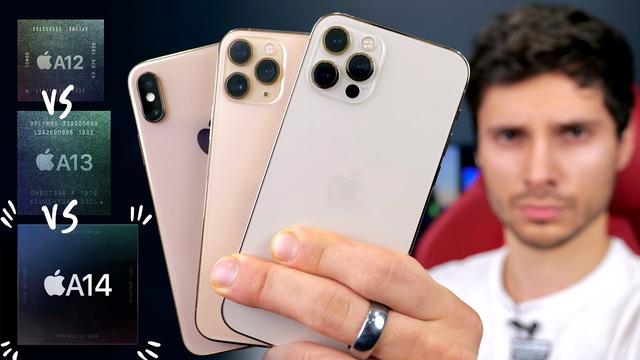
Share to Facebook
Share to Twitter
Share to Linkedin
Concerns around the iPhone 12 range are growing, thanks to
price hikes
and
warnings about MagSafe
. That said, new tests have revealed one area where Apple's new iPhones will destroy the competition.
Apple's iPhone 12 Pro finally fixes the iPhone's biggest weakness
Apple
MORE FROM FORBES
Apple iOS 14.1 Release: Should You Upgrade?
By
Gordon Kelly
Popular YouTuber Filip Koroy (aka EverythingApplePro) has revealed the iPhone 12 Pro delivers stunning real world speed improvements which are off the scale compared to anything synthetic benchmarks, or even anything Apple’s own marketing has claimed up to now. In fact, not only does the iPhone 12 Pro demolish previous iPhones, it wipes out the one long-standing advantage held by rival Android phones: multitasking.
Breaking this down, Koroy’s test opens a large number of apps before reopening each app in order - this is a popular test because it mimics real world usage. The iPhone 12 completes the test in a remarkable 2 mins 49 seconds, compared to over 4 minutes from both the iPhone 11 Pro (running hot but
in line with past tests
) and the iPhone XS. Koroy puts this down to gains from Apple’s impressive A14 Bionic chipset but the unsung hero here is RAM. The iPhone 12 Pro is the first iPhone to come with 6GB RAM and this enables the phone to hold all apps in memory without reloading.

“Every single application that I opened after running a 4K video export was still preloaded in the background. I have never seen this on an iPhone. This is new. Apple has finally fixed the multitasking issue on the iPhone.”
MORE FOR YOU
Apple’s Surprise iPhone 13 Upgrade Suddenly Revealed
Forget The MacBook Pro, Apple Has Bigger Plans
Serious Warning Issued For Millions Of Apple iPhone Users
Historically, Apple’s decision to fit iPhones with 2-4GB RAM has seen iPhones lose out to Android rivals here because they can’t hold many apps in memory, which causes lengthy reload times. This cancels out the big performance gains Apple’s A Series chips have long held over Android phones, in terms of raw speed. This can be seen in the video below, where Samsung’s Galaxy Note 20 Ultra comes from miles behind to overtake the iPhone 11 Pro.
And it was a big advantage. While synthetic benchmarks have given Apple a huge lead over its rivals for years now, the reality is our smartphone usage consists primarily of moving between apps, rather than the scores we get from benchmarks trying to max out the CPU and GPU.
And this is worrying news for both Samsung and Google, at different price points. At the high end, Samsung’s Galaxy S20 Ultra and Note 20 Ultra are already more expensive than the iPhone 12 Pro Max, and now they are heavily outgunned as well. Meanwhile, for Google, it took the risky move to put a lower performance chipset in the Pixel 5 (whose speed was already far behind last year’s iPhone) and now the A14 Bionic in the iPhone 12 and iPhone 12 mini looks set to put it to the sword.
In fact, the biggest worry for Apple at this stage is less likely to be the competition than
its next iPhone
. A legal settlement with Qualcomm forced Apple to publicly reveal iPhone modem plans for the next four years and here the
iPhone 13 looks like a game changer
. For everyone else, things just got a lot harder.
___
Follow Gordon on
More On Forbes
First Apple iPhone 13 Leaks Reveal Smaller Notch, ProMotion Display, Touch ID
Apple iOS 14.1 Release: Should You Upgrade?
